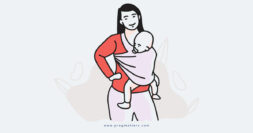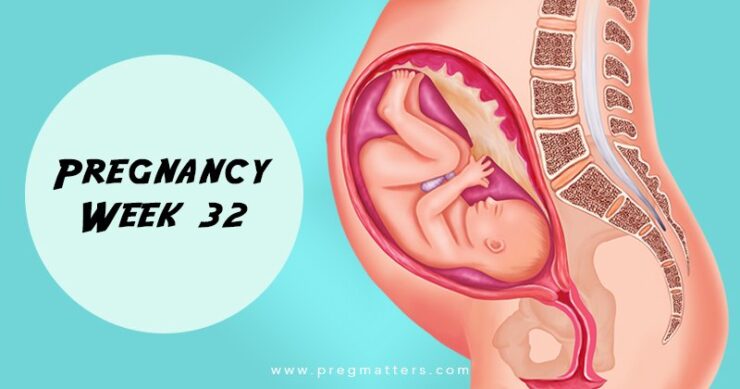
Smart ways to calm and comfort your child
When a child is lonely, discouraged, or sad, it can be tough knowing the right words to say to calm or comfort

Your baby is practicing survival skills like swallowing, sucking, and breathing and is about the size of a Jicama. The baby is about 16.69 inches long and weighs about 3.75 pounds.
Leaking Breasts: By this time, your milk ducts are fully developed in preparation for birth. Your breasts may have produced a yellowish substance called colostrum, some of which can leak from the breasts. This is the first milk your baby will consume.
Backache: Backache is a chronic symptom of pregnancy. This happens because your growing baby puts a lot of pressure on your inner muscles.
Braxton Hicks Contractions: You may feel irregular and less painful contractions as your uterus becomes tight and prepares for labor. These miniature contractions are perfectly normal at this point of your pregnancy. They normally disappear when you change positions. Call your doctor if contractions persist.
Heartburn: Heartburn occurs when stomach acids move upwards to the esophagus. This happens due to relaxation of the valve between the stomach and esophagus. Take an antacid will help.
Clumsiness: You may find yourself off-balance and prone to slipping or falling. This happens due to your loosened joints, extra weight and your shifted centre of gravity. Although clumsiness is a temporary side effect of pregnancy, you need to be extra careful to prevent falling or slipping.
Breathlessness: You may have trouble breathing freely due to baby pushing up against your lungs. This limits your ability to catch your breath.
Breast Changes: There may be some changes in your breasts, such as enlarged breasts, darker nipples and areoles, and bigger bumps on your areoles. This happens as your breasts prepare for breastfeeding.
Increased Vaginal Discharge: May experience increased vaginal discharge during this week. This happens due to hormonal changes. The main purpose of this discharge is to prevent infections from reaching the uterus. It is normal and is not a cause to worry. Call your doctor if it is heavy, colored, tinged with blood, has a foul odor, or causes discomfort.
Frequent Urination: Needing to pee frequently will continue and is a common and constant problem during the entire pregnancy. Pregnant women commonly experience temporary bladder control problems in pregnancy. Baby in your womb baby pushes down on the bladder, urethra, and pelvic floor muscles. This pressure can lead to more frequent need to urinate, as well as leaking of urine when sneezing, coughing, or laughing.
Constipation: During pregnancy, hormones slow down the digestive system, leaving you constipated. This is an ongoing symptom you have to live with all the way through the pregnancy. Eating enough fiber, wholemeal breads, cereals, and drinking plenty of water will help.
Insomnia: Your sleep may be disrupted by body aches, leg cramps, anxiety, and frequent urination.
Itchy Skin: The skin on your stomach stretches, become thinner, and dries out due to increased pressure by the expanding uterus. This can lead to an itchy, dry feeling.

When a child is lonely, discouraged, or sad, it can be tough knowing the right words to say to calm or comfort

Do you find it hard to trim your baby’s nail, especially for the first time? Well, you may consider their soft nails

As you begin your journey into motherhood, you should be prepared to have a fair share of joys and pain. As you

One of the most common discomforts faced during pregnancy is shoulder pains. In fact, over 40% of pregnant women experience shoulder pains

As you welcome your newborn, you might get nervous about diapering your baby. Well, changing diapers is the part most parents dread
© 2018 – 2022 PregMatters.com | All Rights Reserved | Developed & Designed By Familycoaching.com.au All content, including text, images, and graphics, published on Pregmatters.com is for educational and informational purposes only. The information should not be used to advise, act, diagnose, or treat any medical or non-medical condition. Always consult a qualified health care professional if you or your children have any health problems or issues.